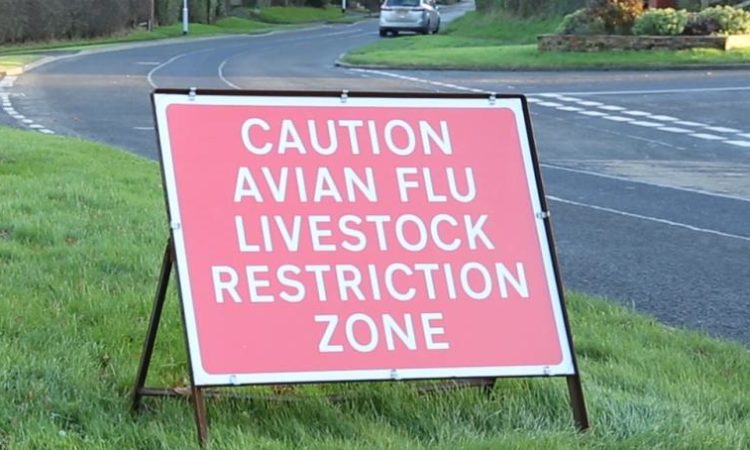New housing measures are to be introduced as part of the avian influenza prevention zone in Northern Ireland from December 23, Agriculture Minister Edwin Poots has announced.
The decision to introduce a housing order in Northern Ireland follows the detection of Highly Pathogenic Avian Influenza (HPAI H5N8) in seven wild birds across Northern Ireland in recent weeks.
Under the new housing measures all bird keepers in Northern Ireland will be legally required to keep their birds indoors and follow strict biosecurity measures.
This applies to owners of pet birds, commercial flocks in addition to backyard or hobby flocks.
Announcing the decision to introduce a housing order, Minister Poots said:
I took the decision to introduce the new housing measures in order to limit the spread of avian influenza. It is now a legal requirement for all poultry and captive bird keepers to keep their birds housed or otherwise separate from wild birds.
“This decision was reached after extensive consultation with industry.
“This is another necessary precautionary step that builds on the strengthened biosecurity measures that were announced when the avian influenza prevention zone (AIPZ) was introduced on December 1.”
Taking action to improve biosecurity
The chief veterinary officer for Northern Ireland, Dr. Robert Huey added:
“I am urging all flock keepers to please take action now to improve biosecurity so as to reduce the risk of transmission of avian influenza to poultry or other captive birds.
I would like to remind bird keepers that an outbreak of avian influenza in a small backyard flock will impose the same restrictions on movements of birds as if it was found on a commercial farm.
“To assist all bird keepers in complying with the new rules we have developed a biosecurity – self assessment tool.
If avian influenza were to enter our Northern Ireland flock, it would have a significant and devastating impact on our poultry industry, international trade and the wider economy.
“I would encourage all flock keepers including backyard and hobby keepers to use the coming days to prepare for the new housing measures, including taking steps to safeguard animal welfare, consult their vet and where necessary put up additional housing in preparation for the introduction of the mandatory housing order from December 23,” Huey said.
Signs of Avian Influenza
Poultry and captive bird keepers are advised to be vigilant for any signs of disease in their birds and any wild birds, and seek prompt advice from their vet if they have any concerns.
Keepers can help prevent avian flu by maintaining good biosecurity on their premises, including:
- Housing or netting all poultry and captive birds;
- Cleansing and disinfecting clothing, footwear, equipment and vehicles before and after contact with poultry and captive birds – if practical, use disposable protective clothing;
- Reducing the movement of people, vehicles or equipment to and from areas where poultry and captive birds are kept, to minimize contamination from manure, slurry and other products, and using effective vermin control;
- Thoroughly cleaning and disinfecting housing at the end of a production cycle;
- Keeping fresh disinfectant at the right concentration at all points where people should use it, such as farm entrances and before entering poultry and captive bird housing or enclosures;
- Minimising direct and indirect contact between poultry and captive birds and wild birds, including making sure all feed and water is not accessible to wild birds.
The new housing measures will be kept under regular review.

